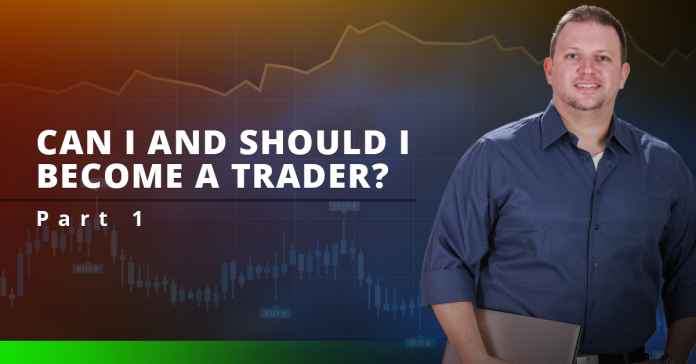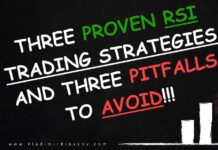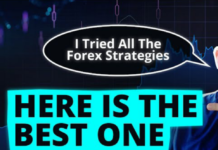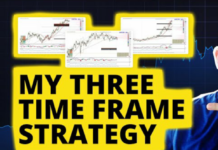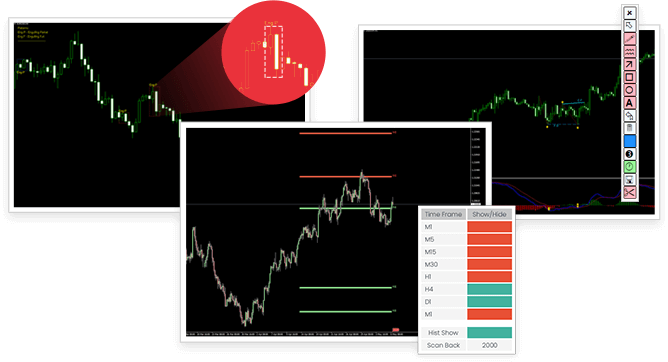
When I meet people on seminars, people who haven’t really been involved in trading, I usually get these two questions within the first minute of our chat: Can I and Should I become a trader? And the answer is: Yes and No. Trading is a profession that is not for anybody. It carries plenty of advantages and disadvantages but you really have to put yourself in the shoes of a trader and consider some of the pros and cons that come along with the profession and make the conclusion for yourself.
This is the main purpose of this article. To motivate you, inspire you and make you think twice before jumping in. The decision you are about to make once you finish reading is not to be made right away. Take your time, take a day or a week. Think about it thoroughly. Regardless of what you decide at the end, I hope I will be helpful with the information below. I will be as honest and detailed as possible BUT always keep in mind that this is just one side of the coin. If you ask 10 traders the same question you are probably going to get 10 different opinions and answers.
First of all let’s start with a definition for a trader.
What is a trader?
A trader is person who tries to take advantage of intra-day or a bit longer term price fluctuations on any financial market either for his own good or the good of the company he works for. The main difference between traders and investors is the duration during which a position is held. A trader would carry a position for a significantly smaller period of time as opposes to the investor who may hold a position for weeks, months or even years.
Types Of Traders:
There are 2 main categories: institutional traders and retail (home) traders.
An institutional trader works for banks, hedge fund houses etc… The big money. The big corporations or as we call them “smart money”. Institutional traders work with someones else’s money (bank’s money for example). Of course you must show and prove your skills to be hired and trusted with millions of dollars or euros or pounds.
On the other hand we have retail traders (you, me and professor forex next door). We are home based traders who trade their OWN money.
Which reminds me of a funny story – a friend of mine had to go on business to Hawaii. He decided to bring the family along and mix the business with some pleasure. His son obviously got confused when he overheard mom and dad talking about this business trip in HAWAII, so the obvious question came: dad what is the difference between business trip and vacation? Smiling, my friend explained that when you are paying out of your pocket it is called vacation, when the company is paying, it is a business trip.
So same when it comes to trading – if you are paying it is retail, if the company is paying it is institutional. Having explained the difference let’s see the other category of types of trades based on styles:
- Scalpers – Very short term, high frequency traders. In and out of a trade within seconds/minutes. Usually related to lot’s of stress, ability to execute and manage trades very quickly, potential for very high returns.
- Intra-day traders – The action here is happening a bit slower but not much. We are still talking about high frequency trading on lower time frames. Trades are usually running from a few minutes to a few hours.
- Mid-Short Term Traders – These type of trades are close to the neighbors from #2 but here things start to slow down. Usually hourly charts are in focus. Trades are running for a few hours or so.
- Swing Traders – Swing traders aim to catch price “swings” or waves. These trades are usually running from a few hours up to a few days. Stress is considerably lower, time for analysis is much higher. Perfect for part-time traders who don’t have the time and ability to stare at charts all day long.
- Investors – Probably my favorite! This is where Daily, Weekly and Monthly charts turn into your best friends. Trades are usually running for days/months. Trades don’t require much managing or analysis. Things tend to happen very slow and you have plenty of time to analyze your setups. A major drawback is the substantially higher amount of capital required to invest. Of course you can start with 5k or 10k account but would you wait 3-4 weeks or 2 months or 6 months for $200 profit?
Many new traders go for scalping for many reasons. First of all you can start with just a few hundred and try to turn it into a few thousand within weeks. Chances are pretty slim but still many try to do it. The possibility of huge returns in very short periods of time is extremely attractive i know that but before you start looking for a broker in google, read the article till the end and sleep on the information that i’m going to give you.
There is an unwritten rule that says:
The lower the time frame, the more the noise.
Translated to human’s english – the shorter the period of trading, the more false signals and moves you are going to experience. If you are just starting out, I would strongly suggest you to go ahead and focus on strategies and methods that involved W1/D1/H4 maximum H1 time frames.
Things tend to happen in a relatively good pace. Not too slow, not too fast. You have time to stop and think. On the other hand you can be in and out of trades relatively frequently – feeding your hunger for action and profits. I think #3 or #4 (of the list above) is what will give you the golden mean.
Advantages Of Being A Trader
Where do I start?!? There are so many advantages this profession will give you on a silver platter ONLY once you master it and become one of the 5% who make money. Statistics vary but the range is 90% – 95% of traders fail!
Choose Your Own Hours & Location
I will start with what I cherish the most – free time to spend with my family! You can’t put a price tag on that. Any profession in the world that gives you the opportunity to be with your family as much as possible is golden! You choose your own hours. Forex market for example (the one where you trade currency pairs like USDJPY and EURUSD) is open 24/5 meaning Monday (Sunday night) – Friday.
You may be located anywhere in the world and still find good times, with lots of volatility to trade.
Infinite Financial Opportunities
Once you become profitable and money starts floating into your bank account, the feeling is inexplainable. You are better than 95% of the traders that try. You make money, you have beaten the market and now you can grow your account. Only sky is the limit. Aside from growing your own account, this is where it also becomes very interesting as various people will start contacting you – brokers, banks etc…
Profitable traders are valued and offers will start raining. When you get to this point PLEASE don’t become stupid and blind in a second when you see the numbers. Find the strength to be the bigger man and think again why have you became a trader, think about what you are going to lose if you start working for someones and so on. Money is not the most important thing, never forget that.
Low Initial Investment
A very important factor is the initial investment. Many people that I know are usually breaking even at the end of the month after all the bills. Somehow, it doesn’t matter how many hours most people work, money is never enough. Is it because appetite comes with the food and we have turned into consumers who are willing to spend every extra cent we find in our wallet on “toys” we don’t really have? I can’t say for sure but it is a fact for many.
So having a low investment requirements is perfect! You can literally start with just a few dollars (DON’T do it) but of course it is better to have at least a thousand.
Economy-Proof Business
Trader’s (I exclude stocks traders here) are lucky as bad economy doesn’t really influence their performance. We don’t really care whether the market is going up or down as long as it is moving. We make money when there is volatility, direction is less important (assuming that you have a trade in the right direction 🙂 ).
Another important fact is that there is no fear of being laid off or fired just when you bought a house and mortgage is due. It all depends on you. There are no bosses, no cut downs. Of course we will look at this aspect of trading in the disadvantages of trading but this is one side of the coin.
That would be all for the first part of this article. On Wednesday I will continue with the following subject so stay tuned:
- Disadvantage of being trader
- Risks
- Reward
- Knowledge
- Required Skills
I’m looking forward to hear your comments, suggestions and questions. If this article was helpful to you, please share and like it!
Yours,
Vladimir

